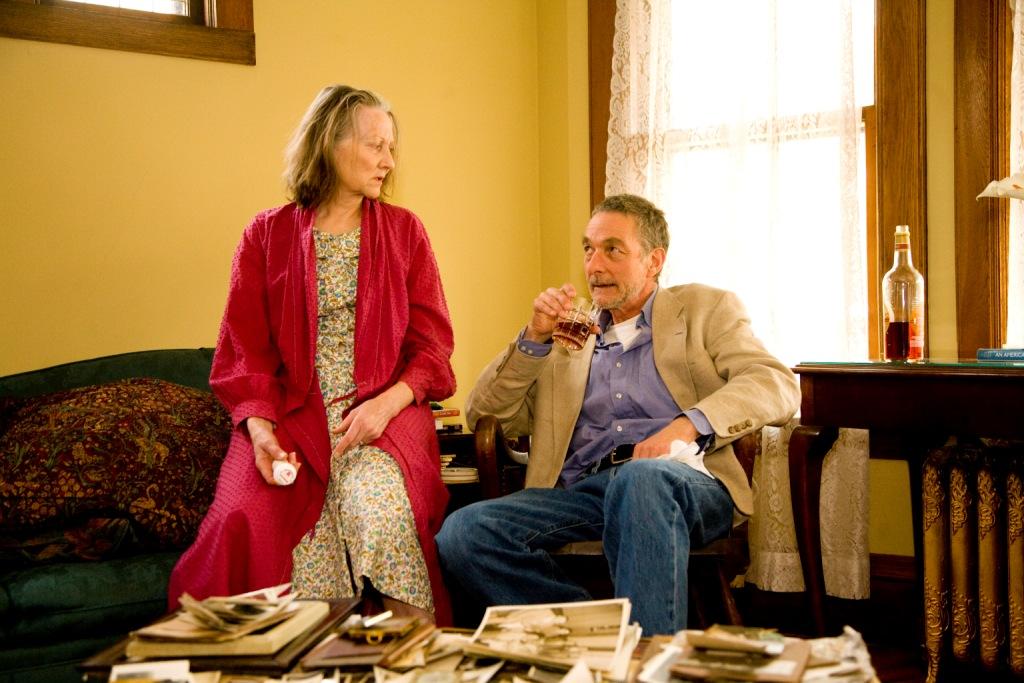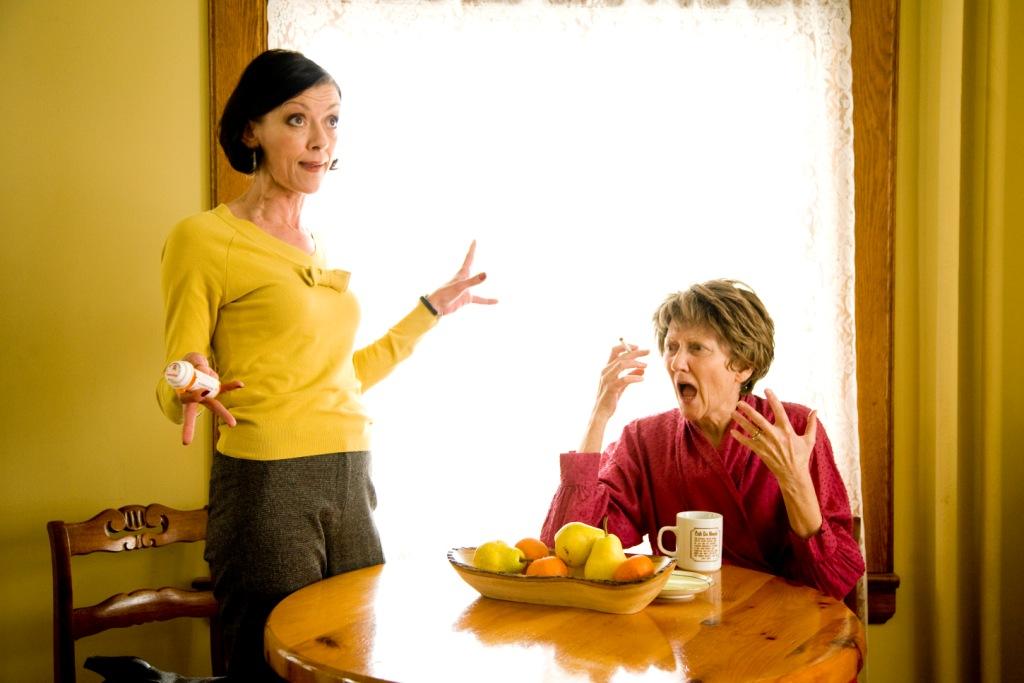
“August: Osage County” takes the stage at Park Square Theatre
Park Square Theatre’s sprawling new production of Tracy Letts’ award-winning play, “August: Osage County,” is a devastating, but richly rewarding night of theater. Letts’ play, which took home both the Pulitzer for Drama and the Tony Award for best play in 2008, is often likened to classic plays by Edward Albee, Eugene O’Neill and Tennessee Williams. The comparisons are both deserved and apt. But it seems to me Letts’ work here shares as much with the dark family dramas found in the Southern literary tradition as it does with those great American plays. His story reminds me just as strongly of William Faulkner, Flannery O’Connor, Carson McCullers or, more recently, Mary Karr.
In “August: Osage County” language is primary: such fine attention is paid to the play of words — on the page and in the mouth, shifting in the course of conversation and over time. With a run-time of three-and-a-half hours, watching the play is an immersive experience, dense and satisfying and sometimes overwhelming — akin to reading a novel as much as watching a performance.
This darkly funny family saga is set in rural, modern-day Oklahoma; the plot centers on the mysterious disappearance of patriarch and once-celebrated poet Beverly Weston. His three adult daughters, two of whom have long since divorced themselves from their rural roots, convene with their families in their childhood home to join their cancerous, pill-popping mother, Violet, their maternal aunt and her family, and the newly hired housekeeper in awaiting news of Beverly’s fate. The Weston clan is dismantled, bit by bit, by the crisis, but also by addiction, unsavory secrets and betrayals and a lifetime of small meannesses, the histories of which unspool over the course of the play’s three acts.
Under the direction of Twin Cities theater veteran Leah Cooper, the cast finesses Letts’ ensemble of drunks and liars, philanderers, shrews and pharmaceutical-grade addicts into something more than the caricatures they could so easily settle into. The frequent moments of affection and genuine warmth are all the more disarming when set against the casually tossed off cruelties that also pepper these characters’ interactions.
The plot has all the twists and turns of a soap opera, and the dialogue moves at a breakneck pace. In this dysfunctional but whip-smart Southern family, dinner conversation is a blood sport. The Westons communicate with one another almost entirely via witty barbs and caustic comebacks. Good-natured mother-daughter teasing turns suddenly sharp, revealing an edge so keen that the shared cuts go mortally deep before the pain even registers. In this family, love is a weapon as much as a balm.
The set design is marvelously detailed and evocative; the lighting is warm and homey: the cut-away three-story middle class home, replete with authentic mid-to-late 20th century middle-American touches, humanizes and softens the Weston family’s hard angles and reinforces their familiarity.
Given the pathos of the tale, it’s amazing just how entertaining and engaging, how truly appealing the characters are in the hands of this cast. Also notable is the genuine interplay between the ensemble players and the (mostly) unforced delivery. Dialogue this densely packed with deliciously crafted laugh lines offers the constant temptation for actors to grandstand a little or maybe chew on the one-liners with a bit too much relish. For the most part — especially in the later acts, once the players settle into a groove — the cast resists that urge admirably.
Letts’ tale explores more than just one family’s brokenness and ennui, hinting throughout at a loftier, empire-in-decline sort of allegory (indeed, a T.S. Eliot line at the end of the play hammers that point home a little ham-fistedly for my taste). But the grand political parable lurking in the background doesn’t overtake the layered, more intimate story at the center. There’s more tragedy than happy endings to be found, but there’s also plenty of big-hearted affection and moments of almost-redemption.
Park Square Theatre’s “August: Osage County” is a heartbreaking, ambitious, wonderfully executed production. It’s meaty and challenging, for audience and cast alike. As such, it’s a particularly bold choice for the theatre’s season opener; how much easier to choose a crowd-pleasing trifle guaranteed to fill seats? So, you should go — this is a production that deserves to find an enthusiastic audience.
“August: Osage County” by Tracy Letts, directed by Leah Cooper, is on stage at Park Square Theatre, a Knight Arts grantee, through Oct. 2; 20 West Seventh Place, St. Paul, Minn. 55102. Call the box office at 651-291-7005 for ticket information, or visit the website for performance times and additional background on the play.
Recent Content
-
Artsarticle ·
-
Artsarticle ·
-
Artsarticle ·



